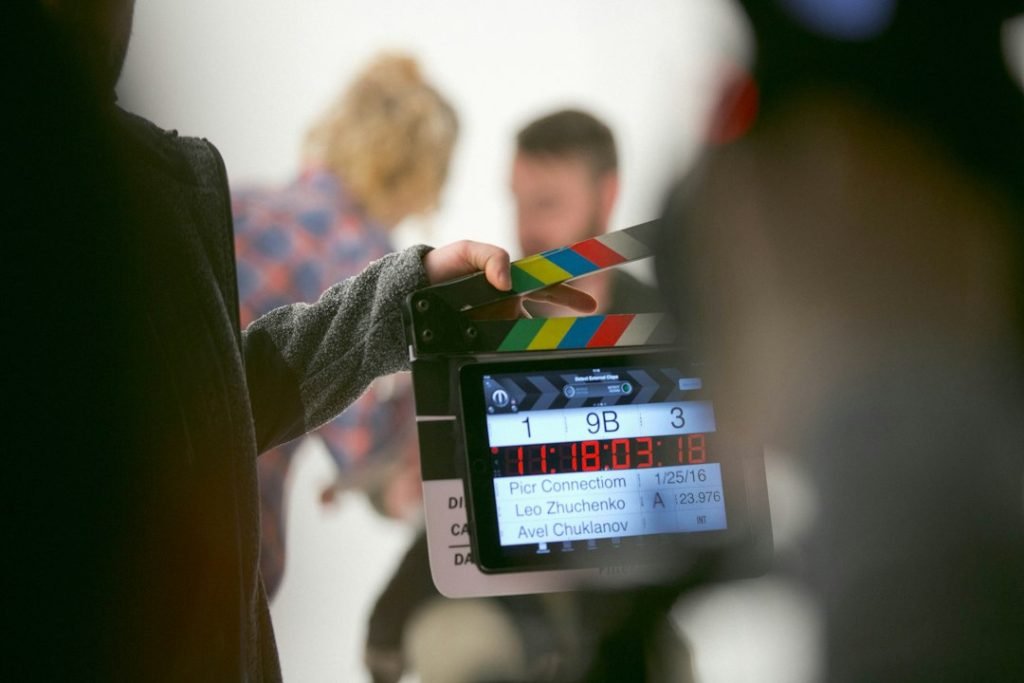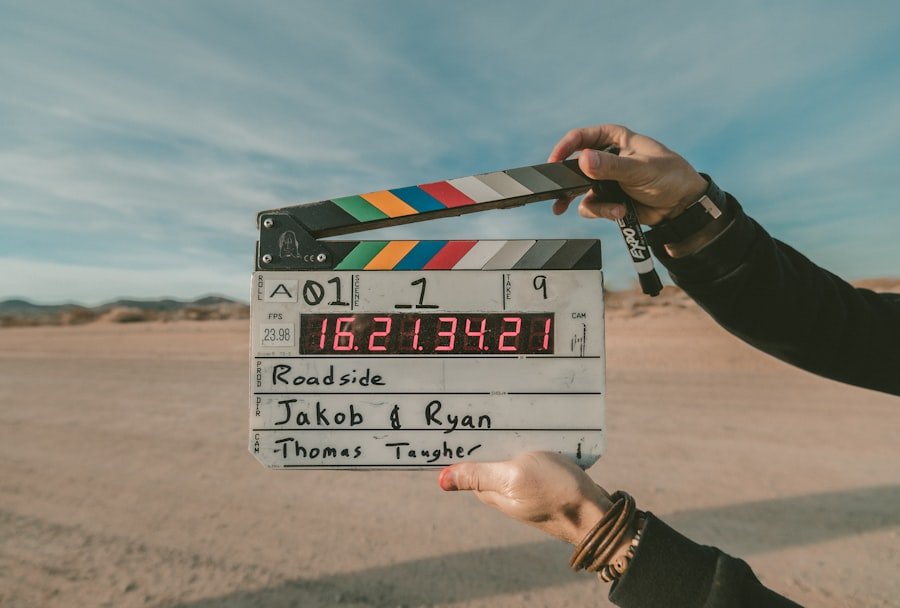

Norwegian Vocabulary for the Film Making Process: Behind the Scenes
Learning Norwegian vocabulary in film making is essential for anyone looking to work in the Norwegian film industry or collaborate with Norwegian filmmakers. While many Norwegians speak English fluently, knowing the local language can greatly enhance communication and collaboration on set. It allows for a deeper understanding of the culture and facilitates better relationships with local crew members.
In addition, knowing Norwegian vocabulary in film making can help you navigate the technical aspects of the industry. From understanding camera and lighting equipment to scriptwriting and post-production, having a grasp of the language will make your work more efficient and effective.
Table of Contents
ToggleBasic Norwegian Phrases for Communication on Set
When working on a film set, it’s important to be able to communicate effectively with your colleagues. Here are some basic Norwegian phrases that can help you navigate conversations on set:
– “Hei” – Hello
– “Hvordan har du det?” – How are you?
– “Jeg heter [name]” – My name is [name]
– “Kan du hjelpe meg?” – Can you help me?
– “Takk” – Thank you
– “Unnskyld” – Excuse me
– “Kan du gjøre dette for meg?” – Can you do this for me?
– “Hva er planen?” – What’s the plan?
– “Vi trenger mer lys her” – We need more light here
– “Kan du flytte kameraet litt til venstre?” – Can you move the camera a bit to the left?
These phrases will help you navigate basic conversations and give instructions to crew members on set.
Technical Terms for Camera and Lighting Equipment in Norwegian
To effectively communicate about camera and lighting equipment on set, it’s important to know the relevant technical terms in Norwegian. Here are some key vocabulary words:
– “Kamera” – Camera
– “Linse” – Lens
– “Blender” – Aperture
– “ISO” – ISO
– “Lysmåler” – Light meter
– “Stativ” – Tripod
– “Kran” – Crane
– “Dolly” – Dolly
– “Reflektor” – Reflector
– “Filter” – Filter
Knowing these terms will allow you to discuss camera and lighting equipment with your colleagues and effectively communicate your needs on set.
Norwegian Vocabulary for Scriptwriting and Storyboarding
When it comes to scriptwriting and storyboarding, having a good grasp of Norwegian vocabulary is crucial. Here are some key words and phrases to help you describe characters, settings, and plot points:
– “Karakter” – Character
– “Handling” – Plot
– “Innstillinger” – Settings
– “Dialog” – Dialogue
– “Scene” – Scene
– “Konflikt” – Conflict
– “Klimaks” – Climax
– “Slutten” – Ending
– “Storyboard” – Storyboard
– “Visuell effekt” – Visual effect
Understanding these terms will allow you to effectively communicate your ideas and collaborate with Norwegian writers and storyboard artists.
Norwegian Terms for Casting and Auditions
When it comes to casting and auditions, knowing the relevant Norwegian vocabulary is essential. Here are some key words and phrases to help you navigate the casting process:
– “Casting” – Casting
– “Audition” – Audition
– “Roller” – Roles
– “Skuespiller” – Actor/Actress
– “Prøvespilling” – Callback
– “Kjempebra jobbet!” – Great job!
– “Vi vil gjerne se mer av deg” – We would like to see more of you
– “Vi har valgt en annen skuespiller” – We have chosen another actor/actress
– “Takk for at du kom” – Thank you for coming
These phrases will help you navigate casting calls and auditions and effectively communicate with actors and actresses.
Understanding Norwegian Film Production Contracts and Agreements

When working in the film industry, it’s important to understand the legal aspects of the business. This includes understanding common terms and phrases found in contracts and agreements. Here are some key words and phrases to help you navigate film production contracts in Norwegian:
– “Kontrakt” – Contract
– “Avtale” – Agreement
– “Lisens” – License
– “Royalties” – Royalties
– “Betalingsplan” – Payment schedule
– “Force majeure” – Force majeure
– “Immaterielle rettigheter” – Intellectual property rights
– “Konfidensialitet” – Confidentiality
– “Oppsigelse” – Termination
– “Tvisteløsning” – Dispute resolution
Understanding these terms will help you negotiate contracts and agreements and ensure that you are protected legally.
Norwegian Vocabulary for Post-Production and Editing
In the post-production phase of filmmaking, it’s important to be able to communicate effectively about editing techniques and software. Here are some key words and phrases to help you navigate post-production in Norwegian:
– “Etterarbeid” – Post-production
– “Redigering” – Editing
– “Fargekorrigering” – Color grading
– “Visuelle effekter” – Visual effects
– “Lydredigering” – Sound editing
– “Musikkredigering” – Music editing
– “Klippesystem” – Editing system
– “Råmateriale” – Raw footage
– “Klipp” – Cut
– “Overgang” – Transition
Knowing these terms will help you effectively communicate with editors and post-production crew members.
Norwegian Terms for Sound Design and Music Composition
When it comes to sound design and music composition, knowing the relevant Norwegian vocabulary is essential. Here are some key words and phrases to help you navigate these aspects of filmmaking:
– “Lydopptak” – Sound recording
– “Lydredigering” – Sound editing
– “Lydspor” – Soundtrack
– “Lydeffekter” – Sound effects
– “Musikkscore” – Music score
– “Komponist” – Composer
– “Mikrofon” – Microphone
– “Lydmikser” – Sound mixer
– “Stemmeopptak” – Voice recording
– “Lyddesign” – Sound design
Understanding these terms will allow you to effectively communicate with sound designers and composers and ensure that the audio elements of your film are of the highest quality.
Tips for Learning Norwegian for Film Making
Learning a new language can be challenging, but with the right approach, it can also be rewarding. Here are some tips for learning Norwegian for film making:
1. Take a structured course: Enrolling in a Norwegian language school or course that specializes in film making vocabulary can provide you with a structured learning environment and access to experienced teachers.
2. Practice regularly: Consistency is key when learning a new language. Set aside dedicated time each day to practice your Norwegian skills, whether it’s through reading, listening, or speaking.
3. Immerse yourself in Norwegian culture: Surrounding yourself with Norwegian media, such as films, TV shows, and music, can help you become more familiar with the language and culture.
4. Find a language exchange partner: Connecting with a native Norwegian speaker who is interested in learning your native language can provide you with an opportunity to practice speaking and improve your language skills.
5. Travel to Norway: Immersing yourself in the culture and language by spending time in Norway can greatly enhance your learning experience and provide you with real-life opportunities to practice your skills.
Enrolling in a Norwegian Language School or Course for Film Making Vocabulary
If you’re serious about learning Norwegian for film making, enrolling in a specialized language school or course can be highly beneficial. These programs are designed to provide you with the specific vocabulary and skills needed to succeed in the film industry.
There are several language schools and courses that offer Norwegian for film making vocabulary. These programs often include a combination of classroom instruction, practical exercises, and real-world application. They may also provide opportunities for networking and collaboration with other aspiring filmmakers.
Enrolling in a structured program can provide you with the guidance and support needed to effectively learn Norwegian for film making. It can also help you build a strong foundation in the language, allowing you to confidently navigate the Norwegian film industry.
In conclusion, learning Norwegian vocabulary in film making is essential for anyone looking to work in the Norwegian film industry or collaborate with Norwegian filmmakers. It enhances communication and collaboration on set, allows for a deeper understanding of the culture, and facilitates better relationships with local crew members. By familiarizing yourself with basic phrases, technical terms, and industry-specific vocabulary, you can effectively navigate conversations on set, understand contracts and agreements, and communicate your ideas and needs throughout the filmmaking process. Whether through self-study or enrolling in a specialized language program, investing time and effort into learning Norwegian for film making will undoubtedly benefit your career in the industry.
If you’re interested in expanding your Norwegian vocabulary beyond the film making process, you might find this article on “Common Mistakes in Norwegian: Ja, Nei, or Jo?” helpful. It explores the nuances of these three common words and provides examples of their correct usage. Understanding these distinctions can greatly improve your communication skills in Norwegian. Check out the article here.
FAQs
What is the article about?
The article is about Norwegian vocabulary related to the film making process.
What is the purpose of the article?
The purpose of the article is to provide readers with a basic understanding of Norwegian vocabulary used in the film making process.
What are some common Norwegian words used in film making?
Some common Norwegian words used in film making include “filmproduksjon” (film production), “manus” (script), “regissør” (director), “skuespiller” (actor), and “klipp” (editing).
Why is it important to know Norwegian vocabulary related to film making?
Knowing Norwegian vocabulary related to film making can be helpful for individuals who work in the film industry in Norway or who are interested in pursuing a career in film making in Norway.
What are some other resources for learning Norwegian vocabulary related to film making?
Other resources for learning Norwegian vocabulary related to film making include online language courses, Norwegian-English dictionaries, and Norwegian language textbooks.
If you want to learn Norwegian, you can register for classes here. We look forward to hearing from you and helping you become fluent in Norwegian.





